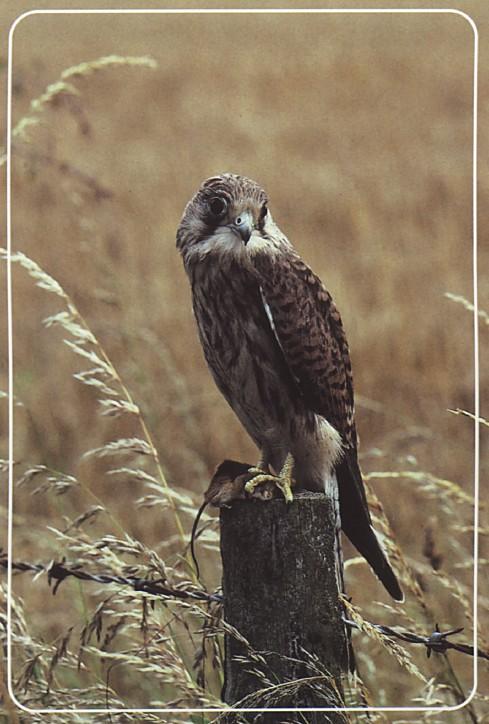|
| Query: Small blue | Result: 634th of 890 | |
Juvenile Common Kestrel
| Subject: | Juvenile Common Kestrel
| | Poster: | F. Anderson (fionaanospam@melbpc.org.au)
| |

| File size : 55567 bytes
File date : 2000:12:14 11:00:59
Resolution: 489x724
Jpeg process : Baseline
Posted Newsgroups: alt.binaries.pictures.animals
Posted Date: Tue, 17 Nov 1998 18:12:59 +1100 |
Falco tinnunculus.
Scottish Postcard
Common Kestrel (Falco tinnunculus) is a bird of prey belonging to the falcon family Falconidae. This species is widespread in Europe, Asia and Africa. The Kestrel is relatively small compared to other predatory birds, but larger than most songbirds. Kestrels have long wings as well as a distinctive long tail. The kestrel's plumage is brown or grey with black spots, and the male has a blue-gray head and tail.
--
/\ /\ We are made of star-dust
^ ^ and a soul.
> * < fionaaNOSPAM@melbpc.org.au
(Remove nospam to reply)
Content-Type: image/jpeg; name="kestrel2.jpg" |
^o^
Animal Pictures Archive for smart phones
^o^
|
|

